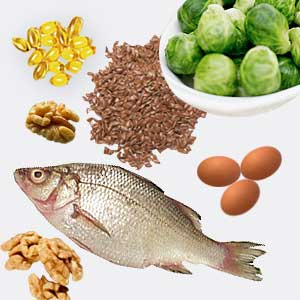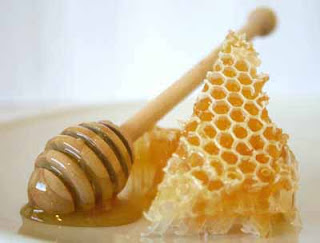Inspired by
20something allergies list of food allergies/intolerances I figured I'd share my food allergies/ intolerances with you;
peppers, mushrooms, potatoes, oranges, grapefruit, beans, sweetcorn, soy, most gluten products (my body sometimes tolerates spelt), pasteurised dairy, maize, beef, pork, peanuts, raw cacao, cooked buckwheat, sorghum, cabbage, millet, beetroot, swede, turnip...and other foods that I can't remember right now. Sometimes food combinations set me off. . . but that would result in a very boring read.
I mentioned in the last post that sometimes inert foods will switch teams just to keep you on your toes, right now coconut is messing with me and I don't like it. What about curry? coconut bread? and, most important of all, coconut cake?? "Pain", my body screams back at me, "that's what".
So, I've compiled a list of foods that have helped me in the past. Starting with, yep, you guessed it; Coconut.
1) Coconut oil, coconut flour, dessicated coconut, coconut chips, coconut milk (so long as it's not got any additives in).
Because it's a plant oil it doesn't contain any cholesterol and doesn't raise cholesterol. While coconut oil is extremely high in saturated fat, it's predominantly comprised of medium-chain triglycerides (MCT) which are easily digested and are preferentially used by the liver as a source of fuel to produce energy.
Most asian supermarkets stock coconut flour, but do check for sulphites on the packaging.
TBT's favourite coconut products can be found
here and our post on coconut's beauty powers can be found
here.
2) If you've gotta have chips try
- Cassava (not acceptable in either GAPS or SCD) is from the root of the yucca plant and makes really lovely chips. According to my reading, celiac's seem to have an easier time with cassava than potatoes. But I should add that it is high in starch (as well as being a good source of calcium, phosphorous and vitamin C). These can be found in asian supermarkets, and tescos sometimes! Most places stock cassava chips now too.
- Or Plaintain (not legal in SCD and GAPS diets). Related to the banana, plaintains aren't as sweet (though they do get sweeter as they ripen), they are very starchy, and must be peeled using a knife. Both plaintain's and cassava's can be grilled, boiled, steamed or fried. Plaintain chips are lovely, and can be homemade or bought in stores as with cassava.
We've gotten on well with both options, however we eat cassava or plaintain chips as a rare treat.
3) Chicken stock. SCD & GAPS diet legal, this miracle broth will help to soothe and repair your gut.
Check out Nourished Kitchen's post on
preparing fresh chicken broth.
4) Apples.
The old adage was right; an apple a day will indeed keep the doctor away, if eaten as part of a healthy and varied diet. Apples are rich sources of phytochemicals (compounds found in plants, fruits, and vegetables that can act as anti-oxidants) and are the best source of the mineral boron, which helps to promote bone growth.
Apples have been found to reduce the risk of lung cancer, coronary heart disease, asthma, risk of stroke, risk of diabetes and aid weight loss. It's also been found that the phytochemicals in apples are
anti-allergenic, some are anti-carcinogenic, anti-inflammatory, anti-viral and can help protect against cancer. In addition to this the high fibre content helps in slow release of sugars into the body, thereby helping to maintain a steady blood sugar level.
Recent research has shown that eating apples is linked to reducing cancer risk in several studies. Some examples are :
- Quercetin, a flavonoid abundant in apples has been found to help prevent the growth of prostate cancer cells
- Phytonutrients in the skin of apples inhibited the growth of colon cancer cells by 43%
- Food containing flavonoids like those in apples may reduce risk of lung cancer as much as 50%
- Dietary phenolics such as flavonoids (found in apples) have inhibitory effects on the developments of carcinogenic substances in the bladder, thereby reducing risk of bladder cancer, especially in smokers
Not to mention a miriad of other health benefits. They also inhibit ageing-related beauty problems due to a compound named procyanidin B-2 which helps to prevent wrinkles and promote hair growth.
References
Boyer, J., & Liu, R.H. (2004). Apple phytochemicals and their health benefits. Nutrition Journal.
5) Raw (unpasteurised) Honey (not suitable for children under 2 years of age).
In addition to being full of nutrients, honey is fantastic for digestion. A team of researchers from the University of Waikato in New Zealand studied whether honey could benefit those afflicted with the H. pylori bacterium known to cause gastric ulcers. Within three days, honey was found to have stopped the growth of bacterium colonies.
Check out our post on New Zealand raw honey
here.
6) Avocados are a great source of vitamin E and are soothing to the gut
7) Cucumbers are a great source of silica, and also soothe the gut.
8) Coriander is said to drag heavy metals and toxins from the gut by way of chelation.
9) All fresh herbs are said to assist the breakdown of heavier foods in the body, thereby easing the digestion process.
10) Raw milk is a controversial one. Anecdotally, there are people all over the internet who believe in it's healing powers. We have to admit that it has helped us tolerate dairy and even helped to stop L's intestinal cramping.
Our post on raw milk can be found
here.
11) Chamomile tea.
Chamomile is a great anti-inflammatory and is worth stocking in your cupboards. It helps to reduce distension, bloating and aids detox.
There are some great gluten-free recipe blogs that discuss new foods and new recipes, all of which are worth checking out and subscribing to. Our sister blog
Cinnamon tea and Mulberries is a gluten free and (mostly) grain free cookery blog, we'd love for you to check it out and tell us what you think!
We hope you've had a lovely day! Thanks so much for stopping by!
X




















